Bitcoin brings hope to Africa: an interview with Alakanani Itireleng
By Mark Norton: Editor @ BitcoinWarrior.net 8/10/14
“Bitcoin is not political,” a growing number of people are saying as it grows in popular usage. Initially, Bitcoin found a home among the libertarian crowd because of its decentralized nature and the 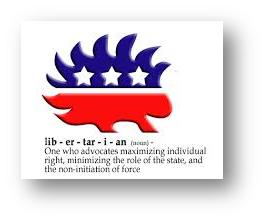 possibility of anonymous transactions. As more and more people begin using the currency, the libertarian fervor wanes. Ultimately this is a good thing since if Bitcoin is to succeed, it’s going to need to be used by people of with a wide diversity of political thought.
possibility of anonymous transactions. As more and more people begin using the currency, the libertarian fervor wanes. Ultimately this is a good thing since if Bitcoin is to succeed, it’s going to need to be used by people of with a wide diversity of political thought.
But that doesn’t mean that Bitcoin is not political. It’s political at its heart. It’s just that its politics are harder to pigeonhole than with a simple term like ‘libertarian.’ Bitcoin was not born out of a vacuum, but out of the abuses of power in our governmental and financial systems that rig the game in favor of the well-off and leave the rest of us wondering how to get by. Bitcoin returns some of the flexibility and privacy to our finances that we used to have before the government and banks ratcheted up demands on our information and banks began to impose high fees and penalties in accordance with labyrinthine rules only an accountant could understand.
According to this report, Chase bank has even started requiring people to prove where they got money they are depositing in order, as they say, to impede illegal activity. Any time controls like this are put into place, we are told that they are for our protection, minor inconveniences to impede criminal activity. It also gives them incredible power and incredible opportunity for abuse. And, unfortunately, the people running the government and the banks are merely human. They are tempted by power and control, they are motivated by fear and prejudice. It’s the tendency of governments to exceed their mandate and it’s the responsibility of the people to make sure that they do not. With the rise of the internet, it’s gotten harder and harder to contest that power. Bitcoin, among other decentralizing technologies, gives us the potential to counter that power.
Alakanani Itireleng, the founder of Satoshicenter in Botswana sees these issues up close and personal and recognizes the potential it has to transform the lives of 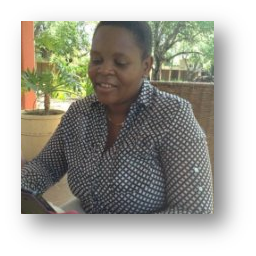 millions. I had the opportunity to talk with Alakanani about her efforts to bring Bitcoin to Africa:
millions. I had the opportunity to talk with Alakanani about her efforts to bring Bitcoin to Africa:
I see from the Motherboard article that there are some other people in Botswana that know about Bitcoin, but there is not much trust in it. This seems natural given the number of scams that are out there (as it seems you well know yourself).
How did you find out about Bitcoin and what made you think it was a good idea to get involved with it?
It was a result of a search for financial freedom, having to raise a child who was very, very sick with a congenital heart condition called Hypertrophic Obstructive Cardiomyopathy and what doctors referred to as Noonan Syndrome. It was a trying time for us; the child needed special care and sometimes some of the medication he took was not available at the local hospital and se we had to buy it separately.
Even the food he ate was special. There seemed to be a problem with his digestive system so he needed to be given a liquid diet. In my efforts to find the money to take him overseas to receive expert medical treatment, I spent many sleepless nights on the Internet trying to find online jobs to boost our family income. It was during one of these searches that I came across Bitcoin; I had lost a lot of money trying to find jobs online but when I read about Bitcoin, it was kind of fascinating and drew me to it. At first it was the value of the Bitcoin compared to the Botswana Pula that drew my interest. I thought that if I could find a job that’s paid in Bitcoin, then our lives would be changed entirely. I found a site called YourBitJob.com (no longer searchable), which paid out for referring people to their site. Withdrawals were allowed once you reached a balance of one bitcoin. When I reached 1.73 Bitcoin, I tried to withdrawal, but found I had to complete a survey first. No matter how I tried, I couldn’t complete the survey to get the bitcoins.
I began to read more about Bitcoin and what it is all about; the more I read, the more I wanted to know. I read about the blcokchain, the Bitcoin protocol, the benefits to remittances, and all the things that really matter for people in Africa. My attention shifted from searching for financial freedom for myself and my family to introducing Bitcoin and its benefits to the people of my country and changing things for everyone here. I took the first step and started to tell some of my friends about it, and then I had the idea of creating Facebook page which people could refer to when they wanted to learn about Bitcoin. I started to post on blogs and webpages that were talking about Bitcoin so that people could help me bring Bitcoin to Botswana. I was still a newbie and didn’t really know much, but I took confidence in that fact that I could do at least this.
I was lucky enough to be noticed by Alec Liu of Motherboard who loved what I was doing and who wrote a story about my dream to bring Bitcoin to Botswana. Since then, I haven’t looked back. Now my scope has broadened and I am working tirelessly to see to it that the dream extend beyond Botswana to all of Africa. I have connected to people like Nana Philip Agyei in Ghana and Kathrine Atuhaire in Kampala, Uganda looking to me to help bring Bitcoin to their countries.
It’s a humbling experience and I have been working to get them the exposure they need to that the entire continent can join the Bitcoin economy. I think it is amazing that Nana is now running a Bitcoin gateway, 37coins, that will help bring Bitcoin to the unbanked in Ghana by allowing them to send Bitcoin via SMS with no smartphone or Internet required. We should see this service extend to the rest of Africa and the creation of many services like it. In Botswana, I am looking to create a strong relationship with Quickycoin, an exchange in Hong Kong, and Coinversity, a site dedicated to bringing greater diversity to Bitcoin ownership. That’s what Africa needs: more Bitcoin opportunities. I believe that Bitcoin will have much greater success in Africa than in other places.
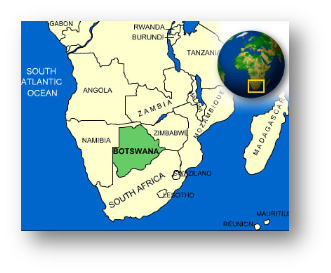
How do you think that Bitcoin might help people in your country?
Just like in other African countries, life here is quite expensive. Bitcoin and technologies like it could go a long way to making it less expensive. For example, sending money to a brother or sister in another African country or overseas is really expensive. You need to pay high percentage fees to send the money no matter whether it’s a wire transfer, EFT, or Western Union. Mobile money such as Mascom, MyZaka, and Orange Money make it easy to send money from one area of Botswana to another, but you cannot send money using mobile money outside Botswana. Bitcoin is borderless so anyone can send and receive it. Payment gateways such as 37coins don’t even need an Internet connection or smartphone. Because of this, Botswana can be at the forefront of Bitcoin adoption and usage.
The stability of banking institutions in Botswana is limited, and it’s reported that 33 percent of the population remains unbanked. With a population of 2.1 million people, that’s a lot of people with now access to banking services. However, many people do own cellphones and people are already using cellphone services for handling money. This means that there is a strong chance for Bitcoin to be adopted and succeed in Botswana.
Bitcoin needs payment systems to make it really practical for people and I have been trying to mobilize young computer graduates to study systems like Ripple Labs and 37coins to see if they are workable in Botswana.
There are so many ways that my country can benefit from the Bitcoin economy. It has a lot of opportunities for tourism that draws people from all over the world every day. More and more of these people have bitcoins, but they don’t have very many places to spend them yet. If Bitcoin becomes a standard method of payment, it will make it easier and safer for tourists to come an enjoy Botswana without having to carry large sums of money or worry about queue at the bureau de changes or other money changers. Lowering the barrier for people to bring money to Botswana would go a long way to improving the economy of the country, which subsists mostly on tourism and diamonds.
How do you think that people could be made to see the value of Bitcoin, begin to trust it, and get involved?
I think the most important thing is to avoid unnecessary scandals and scams like the one I ran into when I first got interested in Bitcoin. Sometimes people just get too greedy and tarnish the image of Bitcoin that Satoshi worked so hard to create. Bitcoin is not about one person, but about the whole world. People value their hard-earned cash and if you mess with that, then their faith and trust Bitcoin will disappear. I u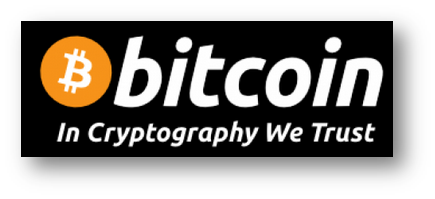 nderstand that Bitcoin is still in a development phase and like any other new ting it will go through some hardships. In order for people to gain trust, the people who have the best information need to be at the forefront selling the true image of Bitcoin to the people.
nderstand that Bitcoin is still in a development phase and like any other new ting it will go through some hardships. In order for people to gain trust, the people who have the best information need to be at the forefront selling the true image of Bitcoin to the people.
You are the CEO of Satoshi PTY LTD. Could you describe what that business is and how things are going?
Satoshicenter PTY LTD is an idea that born out of a desire to have a center where all things Bitcoin could be found in Botswana. It’s a referral site where people from all corners of the world will be able to reach me and the team that I have built. The objective of the company is not only to help grow the Bitcoin ecosystem in Botswana, but dreams to be the meeting point for Bitcoin enthusiasts all over Africa. The dream is for the company to be fully equipped for Internet conferences, get brochures explaining Bitcoin, get slide presentations demonstrating the value of Bitcoin, and even buy a variety of Bitcoin merchandise.
The company is not up and running yet as I am still saving to fund it. I am hoping to be able to open its doors by the end of the year. Satoshicenter is looking for assistance from those who already have succeeded in bring the Bitcoin economy to their countries and who are interested in lending a helping hand. We are interested in bringing mining hardware, paperwallets, Bitcoin ATMs, exchanges, and anything else that will help make Bitcoin a viable option for the people of Botswana. The Satoshi office will make it possible for us to get organized and provide professional-level services and help Bitcoin reach great heights in Botswana.
We are using our website http://bitcoinladybotswana.com to report on any progress on our projects, our charity work, and really anything at all.
You are also a Bitcoin Pioneer. What’s that?
I guess it’s because I’m leading the way for other people in my country to follow me in this journey of bringing Bitcoin to Botswana. Those who want to do something in relation to Bitcoin can follow my footsteps and do so. If you want change to happen, you need to take the first bold step to do so.
(Edited for clarity.)

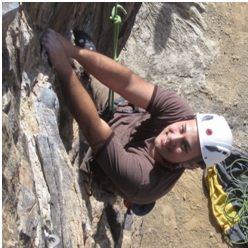

Comments are closed.